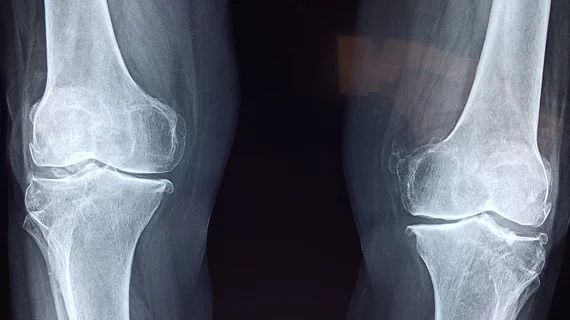AI decision aid improves patient outcomes
An AI decision aid significantly improved decision quality, level of shared decision-making, patient satisfaction and functional outcomes in patients compared to an education-only approach, according to a new study in JAMA.
The study analyzed a randomized clinical trial of 129 patients with knee osteoarthritis who were considering total knee replacement. Researchers wanted to assess the effect of an AI-enabled patient decision aid on a number of measures, including decision quality, patient experience, functional outcomes, and process-level outcomes. The aid included education, preference assessment and personalized outcome estimations and was compared against education only.
Sixty-nine patients were put into the intervention group with the AI decision aid, with 60 patients in the control group. The intervention group had better decision quality, collaborative decision-making, satisfaction and improved functional outcomes at four to six months. This group also did not experience any longer consultation times, which can help surgeons use their consultation time more efficiently.
“These findings suggest that AI-enabled decision aids incorporating patient-reported outcome measurement data provide a personalized, data-driven approach to shared decision-making for the surgical management of knee osteoarthritis,” wrote first author Prakash Jayakumar, MBBS, DPhil, of Dell Medical School at the University of Texas at Austin, et al.
The findings could help patients who are considering a total knee replacement procedure, which is one of the most common procedures in the U.S. but is considered “high stakes,” Jayakumar et al. described.
“For all individuals with advanced knee OA, this decision aid may better address patient expectations around symptom relief, improvement in physical function, and psychosocial wellness, as well as provide clarity around fears, attitudes, and the risks and benefits of surgery,” the authors wrote.
Healthcare teams can also benefit from the decision aid by aligning patient preferences and expectations. Visual elements of the decision aid can be useful for healthcare teams to show patients their personalized care options. Researchers used patient assessments with the AI tool to further aid in decision making, enriching the surgeon-patient discussion, according to the researchers.
“Patients using the tool may feel more involved, informed, and in control of the decision-making process,” they wrote.
However, for decision aid technology to become widespread, surgeons will require in-depth training on the complex data points collected.

